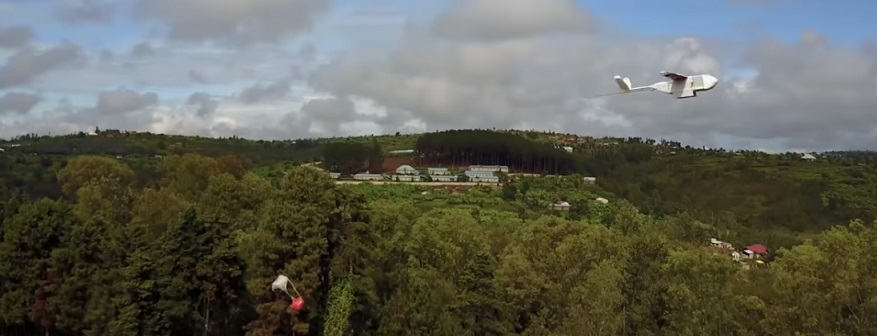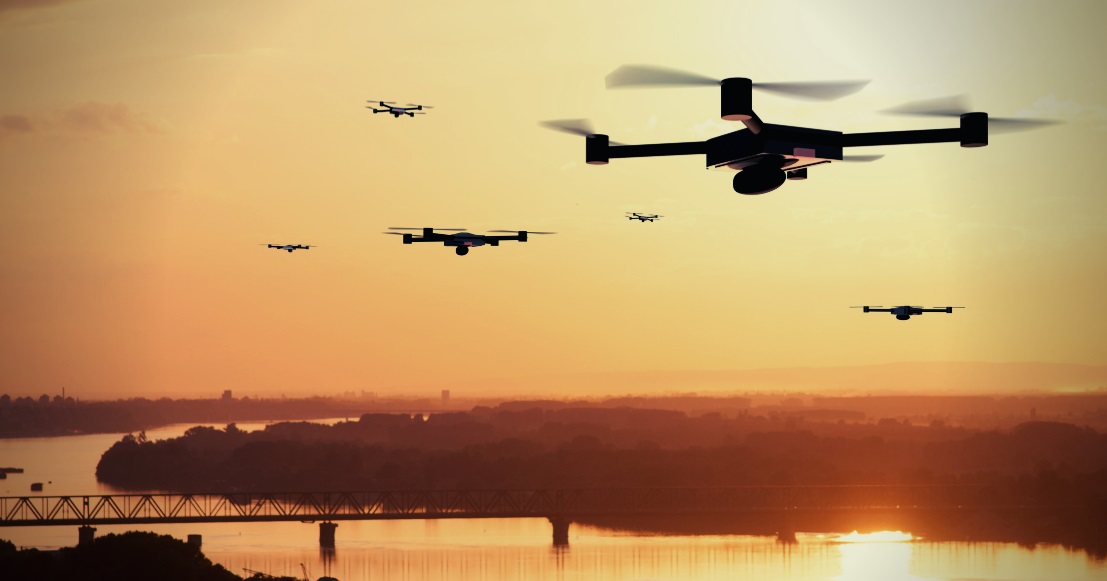Drones Lead The Way At Fortune’s Brainstorm Health Conference

Last week, Fortune Magazine’s fourth annual Drones Lead The Way At Fortune’s Brainstorm Health Conference. The twofold mission of this event, as described in its website, was “to determine how technologies can actually move people to better behavior–and better health” and to determine “how we can best harness the power of business to improve health’s bottom line.” The conference featured – as both presenters and attendees – C-suite leaders of top companies, hospitals, insurers, cutting-edge pharma and biotech companies, venture capital, tech and telecom, and other industries with something to contribute to the business of healthcare.
One of those leaders was Keller Rinaudo, the CEO of Zipline International. Long-time readers of the Dronethusiast news section should recognize the name Zipline, the company which runs a drone-based commercial blood delivery service in Rwanda and which hopes to expand to the US and other countries. Rinaudo’s presentation – which can be viewed in full for free on the Fortune website – contained what attendees called “stunning images” of the extremely well-funded work his for-profit company is doing in Africa. Today, thanks to Zipline, Rwanda is delivering 60% of the national blood supply outside of Kigali (the capital city) using drones. About half of that blood is being used for mothers suffering from postpartum hemorrhaging.
To hear Rinaudo tell the story, his company is finding innovative ways to help the underprivileged populations of the world’s most poverty-stricken continent. The introduction to his presentation calls out the way that “the logistics of today’s health care system really only serve the ‘golden billion’ people on the planet.’” He points out – correctly – that his company’s drones are precise enough to deliver to a mailbox set up by a resident and don’t need a runway to take off and land. He says that the made nearly 4,000 lifesaving emergency deliveries in the last year alone, and that the four distribution centers it plans to build in Ghana will make medical products available to 20 million people.
But other conference attendees were not as impressed with the power of innovative technology to fix the world’s healthcare problems. Peter Sands observed that “the business community is not really engaged in global health in the way they are engaged in the environment.” The former banker shared the findings of his group, The Global Fund For AIDS, Tuberculosis And Malaria, which found that 74 percent of Fortune 500 companies have policies on the environment while just 10 percent are formally addressing global health.
Other attendees brought up the idea of “Medicare for All”, a proposal that’s already been implemented in many Western countries and which has recently become a prominent platform position for many Democratic presidential nominees in the US. This is an idea many CEOs like Rinaudo are resistant to, as it would hurt the aforementioned “bottom line” of their own for-profit healthcare efforts. Despite this, Fortune Magazine (the hosts of the conference) said in their most recent online issue that Zipline drones “may be the trick to achieving universal health care.”

There’s another issue that didn’t come up at the conference at all, but which we’ve reported on previously: the objections of those actually living in Ghana to Zipline’s attempts to expand their drone delivery business there. Many citizens feel that their government’s subsidization of the drone program is an attempt to appear trendy while avoiding actual problems with the country’s health infrastructure, including the lack of ambulances nationwide.
To be clear: here at Dronethusiast, we felt the interesting controversy here was worth reporting on, but we take no side in this particular debate. The conference itself provided some fascinating insight into the contradictory positions of the modern health industry and Zipline’s presentation showed how far drone technology has come in terms of breaking into the mainstream. We have no doubt that drones will continue to become an even greater part of all industries, especially as drone delivery becomes more achievable in a greater variety of countries.
As to the specific ROLE drones and drone companies should play in those countries, we leave that discussion up to the comments. What do you think? Should big business stay out of healthcare? Should big government? Is Zipline’s goal really to help impoverished citizens, or is it all about the Benjamins? Feel free to RESPECTFULLY debate these topics below – we’re excited to hear what you all have to say!





